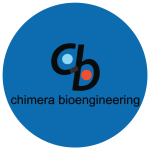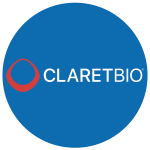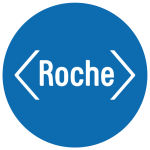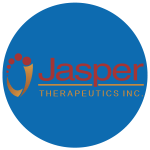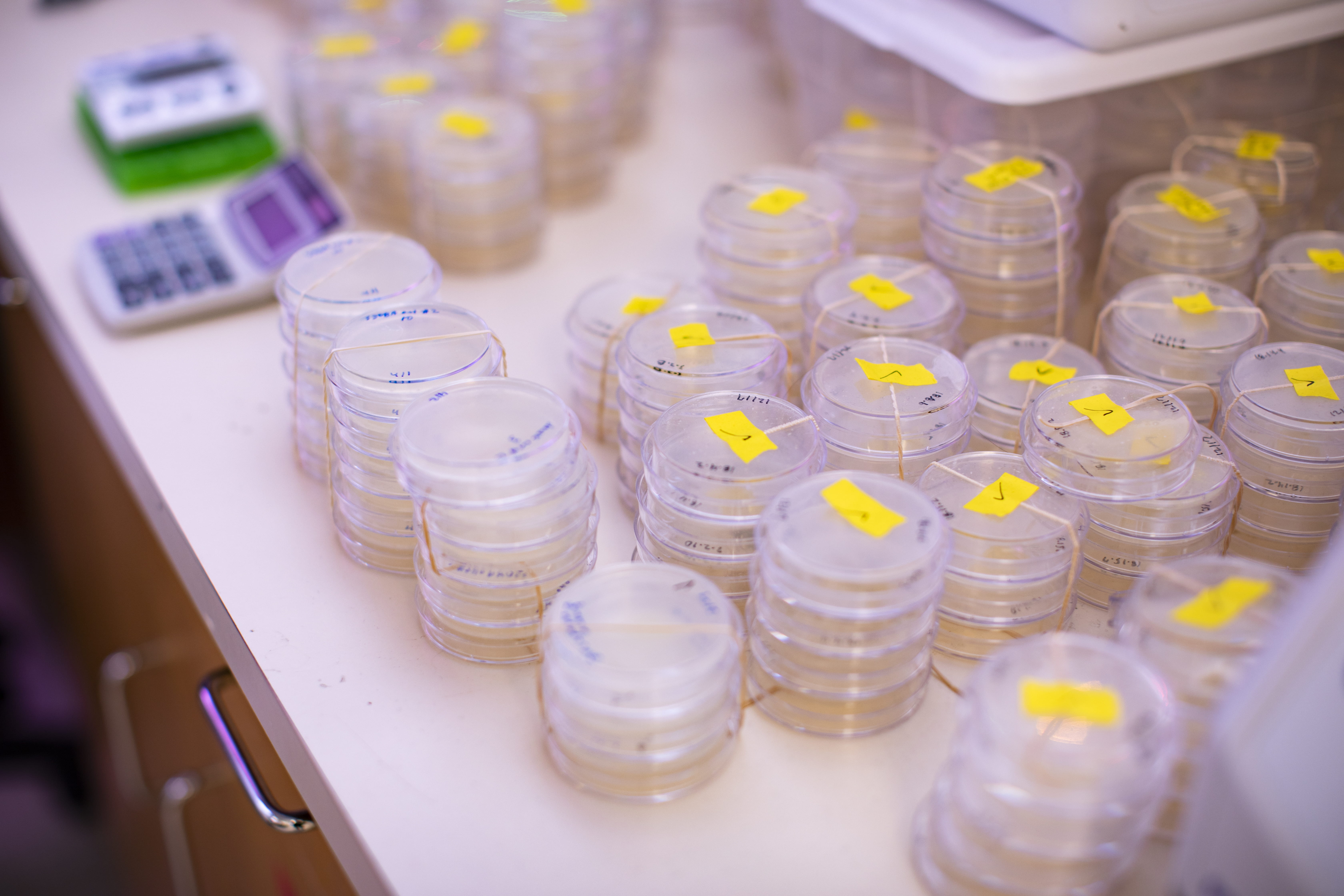
Mentored Training and Targeted Career Development
Navigate and develop your career in a targeted manner and strengthen your candidacy for your next career move with the California Institute for Regenerative Medicine (CIRM) Training Program at the Institute for the Biology of Stem Cells at UC Santa Cruz.
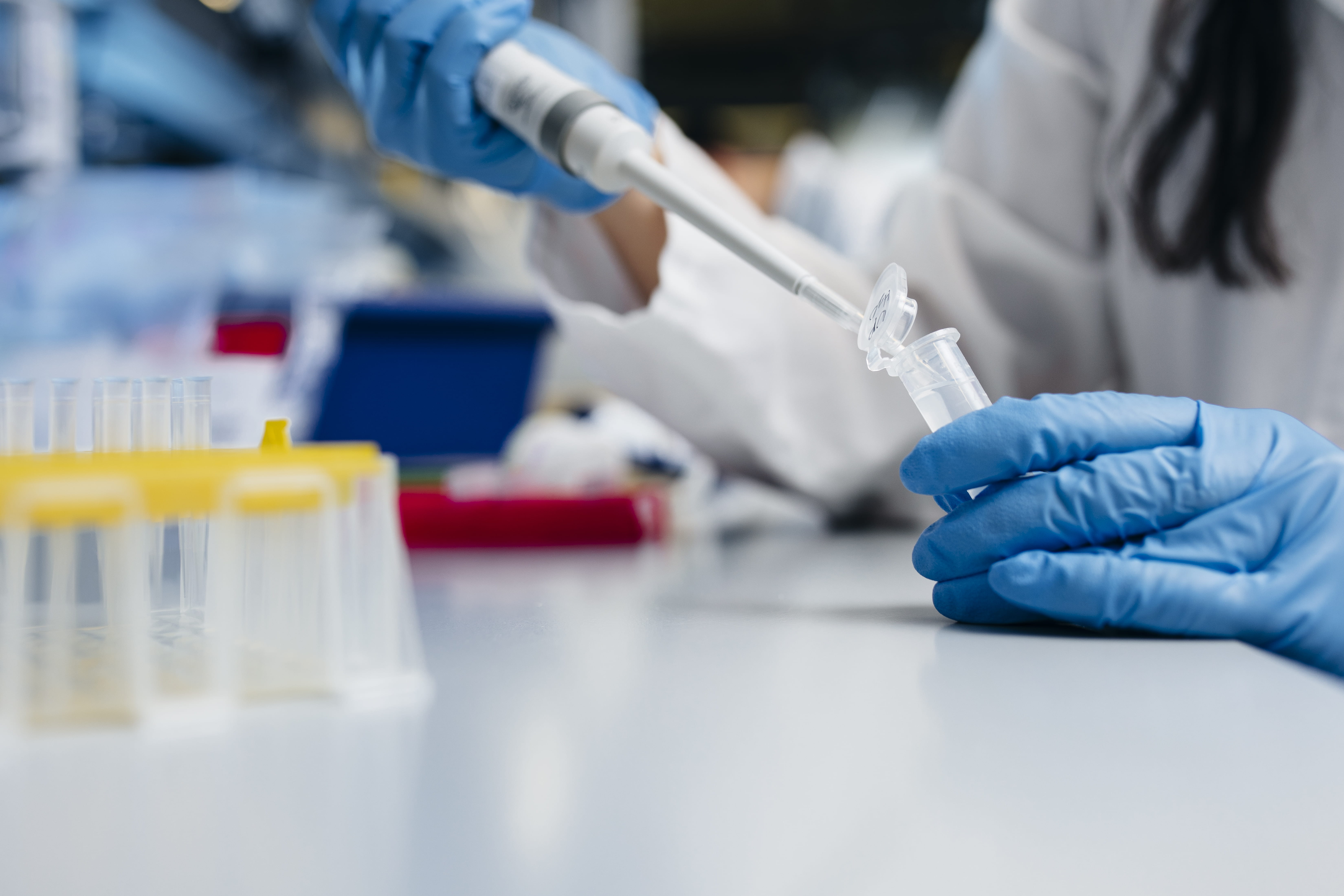
Customized training and career development in support of diverse careers
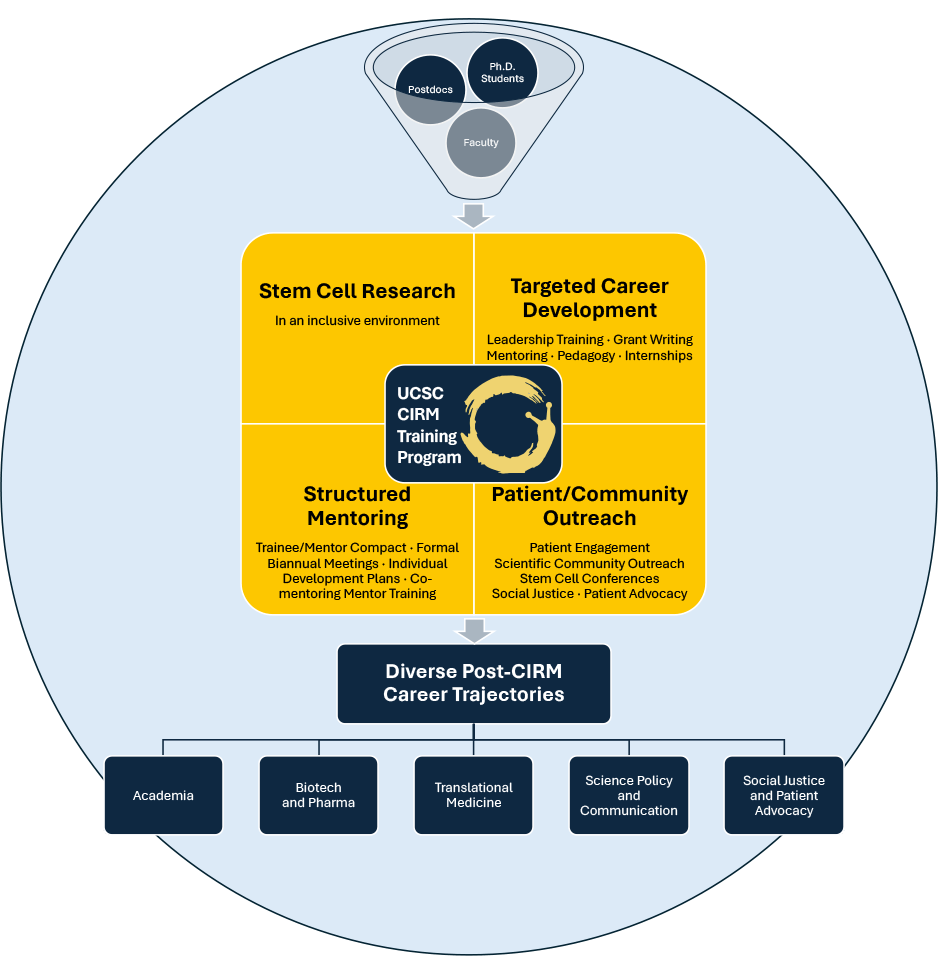
The IBSC offers both Predoctoral and Postdoctoral training funded by the California Institute for Regenerative Medicine. These CIRM training programs provide structured mentoring; cohort building; discipline-specific coursework; career skill development; patient engagement opportunities; scientific community outreach opportunities; and professional networking opportunities. Combined with financial support towards salary/stipend; laboratory supplies; and conference travel, the CIRM program at UCSC provides trainees with the knowledge, skills, and inspiration to become future leaders in the fields of regenerative medicine.
Targeted Career Development and Support
Multi-Year Funding
CIRM Trainees receive an initial 12-months of support, with the possibility of renewal for additional 12-months (up to a 3-year program length for Graduate Students, or 2-year program length for Postdocs.) on a non-competitive basis, based on program compliance, participation, and research progress. Postdocs may apply on a competitive basis for a 3rd year of funding.
Industry Internships
CIRM Trainees have the opportunity to gain real-world industry experience while developing transferable skills through internships and shadowing with biotech and pharmaceutical companies. Internships are not limited to specific companies as requests and suggestions by Trainees are welcomed and encouraged.
Laboratory Supply and Travel Funds
As a CIRM Trainee you’ll be provided with an annual laboratory supply stipend and annual travel stipend in support of attending scientific conferences and career development activities and workshops. These funds are designed to support your research and professional growth, helping to equip you with the multidisciplinary training and soft skills necessary to transition to thrive in a variety of industry and non-industry roles.
Salary and Benefits Support
Studies continue to highlight the importance of financial stability during graduate and postdoctoral training. That’s why CIRM Trainees receive an annual contribution towards salary and associated benefits, as well as a contribution towards Graduate Student Tuition and Fees (if applicable).
Learn More About CIRM’s Training Initiatives
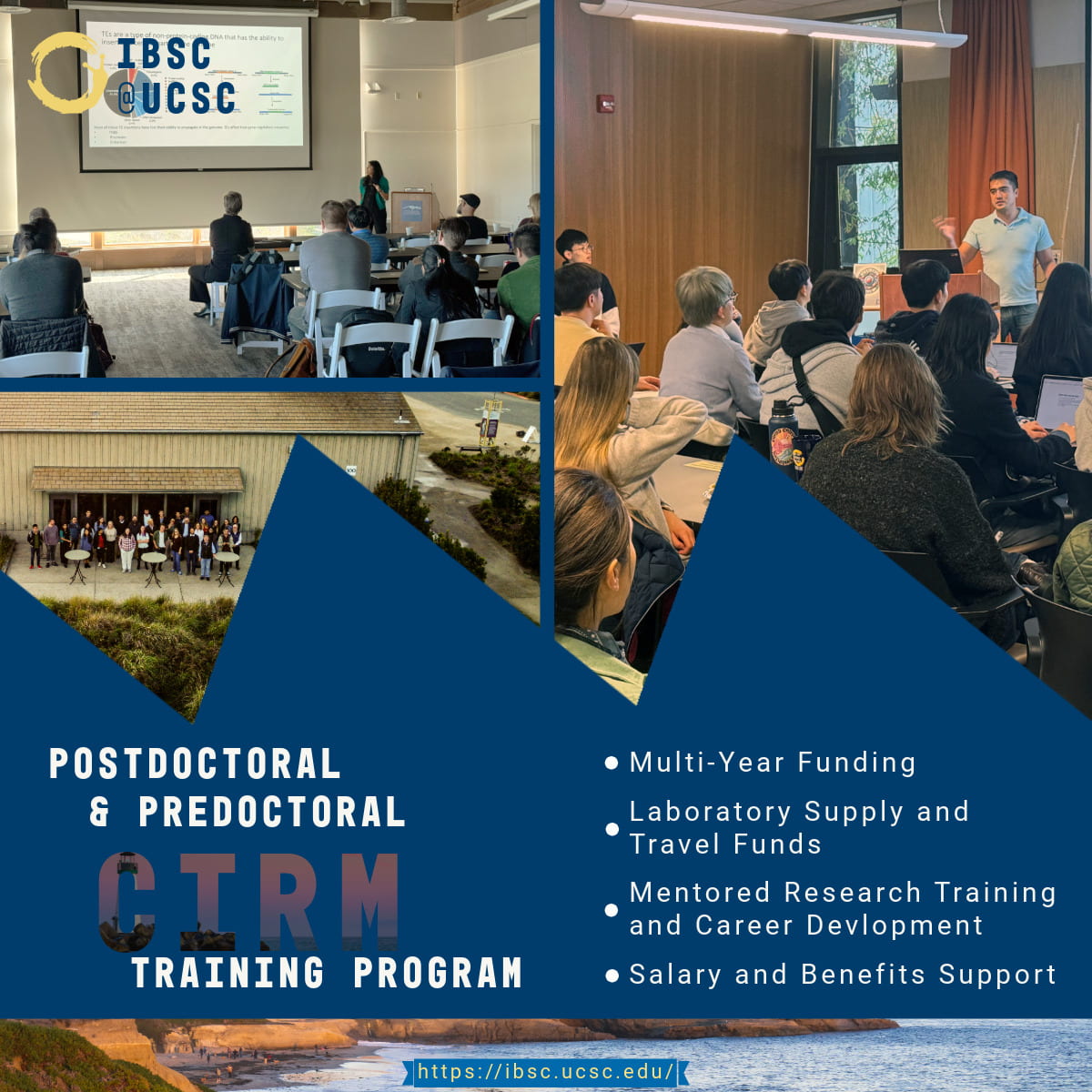
Considering Applying to be an CIRM Trainee?
The IBSC would love to have you!
Our program is designed to equip you with the mentored training and career development needed to transition to industry or pursue a rewarding career in stem cell biology or regenerative medicine. Be sure to come prepared with a list of organizations you would like to intern with to maximize your training!
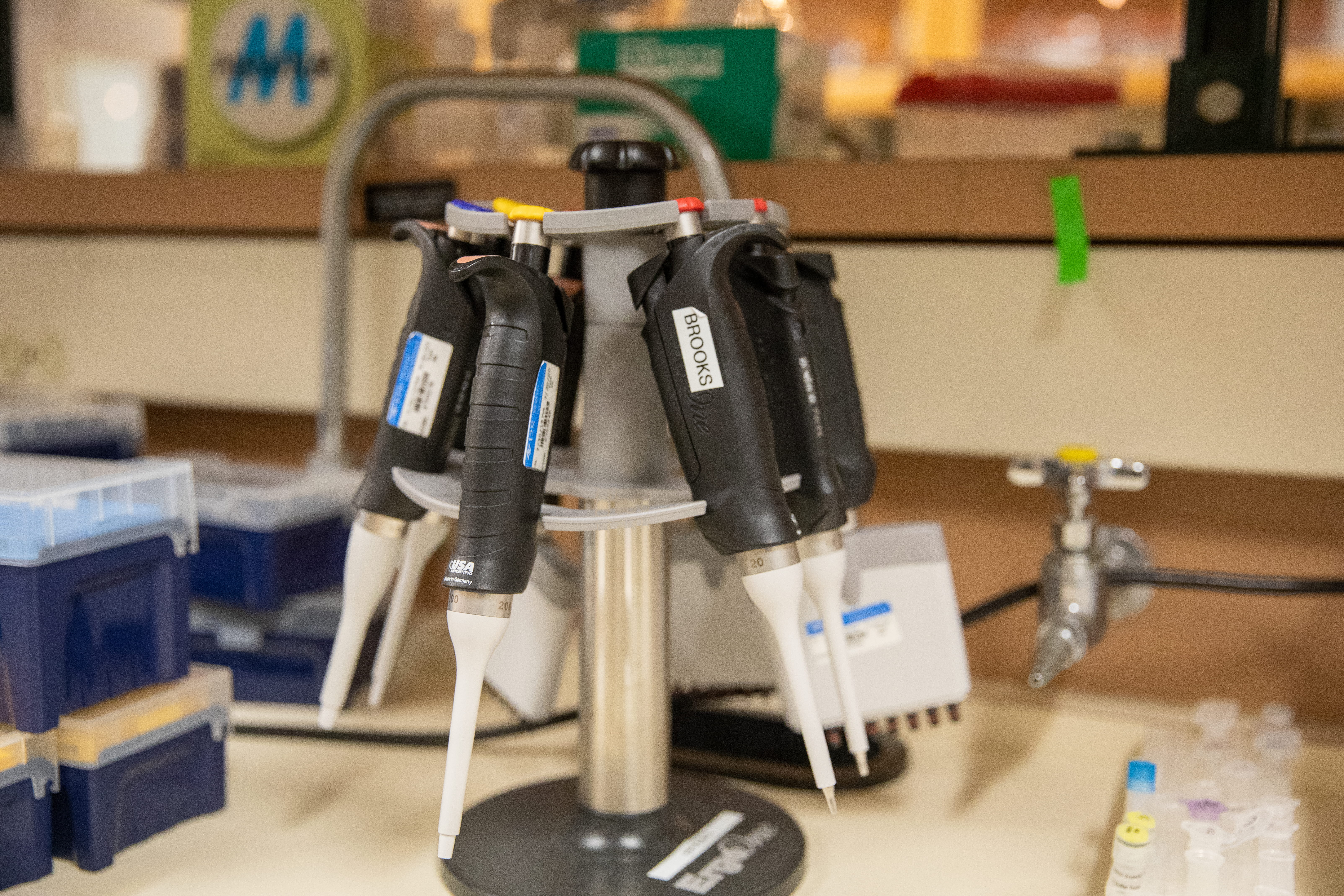
Postdoctoral Training
Program Duration
CIRM Postdoctoral fellows receive an initial 12-months of support. Renewal for an additional 12-months of support (2 year program length) is on a non-competitive basis and determined by program compliance, participation, and research progress.
Third Year Optional Competitive Renewal
CIRM Postdoctoral Fellows can receive a total of three (3) years of funding, however the third year is on a competitive basis. CIRM Fellows who are in their second year of training can submit an application for consideration for a third year of funding following the standard Application Deadline for that Program Year (i.e August 31st). Research proposals can remain the same as in the original application while application materials should speak as to how a third year of training would provide additional tangible benefit, career development, and otherwise aid in moving to the next career stage.
Resources Provided
CIRM postdoctoral fellows receive the following financial support. Please note that all resources detailed are for the 2025 Program Year:
- Stipend towards salary and benefits totaling ~$69,600*
- Supplemental $5,000 stipend towards health insurance*
- Annual stipend of $12,000 towards laboratory supplies and scientific conference travel
*Please refer to the CIRM Postdoctoral support calculator to determine required PI-funded supplemental payroll.
Eligibility Criteria
- Postdocs currently working on research related to CIRM’s mission of accelerating treatments to patients with unmet medical needs; as well as those considering a career in research, particularly stem cell research and related areas are highly encouraged to apply.
- Postdocs currently participating in a training program (i.e. IRACDA) are discouraged fro applying due to conflicts with resources provided.
- US and International postdocs are encouraged to apply.
Selection Process
- Applications are reviewed on an annual basis following the close of the application deadline.
- Application materials are provided to an independent, External Selection Committee (ESC) who score each application on the basis of research; mentoring; outreach; and letters of recommendation.
- Scored applications are provided to the IBSC by the ESC with the IBSC communicating application outcomes directly to applicants and their prospective mentors.
Program Requirements
- Formal Biannual Mentor/Trainee Meeting and IDP Review
- Trainees meet with their mentor every 6 months to formally review their progress.
- Trainees work with their mentor to co-develop an Individual Development Plan (IDP) detailing career goals and their associated planned activities to reach stated goals.
- Annual Evaluation Survey and Research Progress Report
- Trainees complete an annual survey providing feedback on their training program, self-evaluation, and mentor-evaluation.
- Trainees complete an annual form detailing the progress made on their research over the past 12 months.
- Coursework
- Postdoctoral trainees will audit two (2) of the following courses:
- Stem Cell Biology (BME 278)
- Stem Cell Epi/Genomics (BME 273)
- Stem Cell Ethics (BME 247)
- Petitions to waive or substitute one of these courses for a previously completed course or a course better tailored to their IDP should be filed by the trainee within 6 months of beginning their program.
- Postdoctoral trainees will audit two (2) of the following courses:
- Stem Cell Club
- Trainees attend Stem Cell Club on a monthly basis for presentations given by internal and external speakers.
- Trainees present their research at least once during their training program.
- Research Review Day
- Trainees and mentors attend an annual Research Review Day (typically in November) where trainees present their research in short presentation format; participate in career development seminars; and review/discuss program components.
- Patient Engagement and Advocacy Activities
- Trainees participate in one patient engagement or patient advocacy activity annually to facilitate better understanding of the needs of patients and the high-level impact of their research.
- Trainees can propose a novel activity that is relevant to their field of study.
- Scientific Community Outreach Activities
- Trainees participate in one community outreach activity annually to facilitate improved scientific communication skills.
- Trainees can propose a novel activity that is relevant to their field of study.
- Mentor Training
- All trainee mentors are required to take at least one mentorship training course annually.
External Funding
- Trainees are highly encouraged to apply for additional external funding throughout the course of their CIRM training program.
- In support of this objective, trainees may attend a Grant Writing workshop (see below).
Non-Required Career Development Opportunities
The IBSC organizes and participates in additional workshops, courses, and activities to provide specialized training that can be considered for inclusion in and IDP:
- Responsible Conduct of Research workshop (RCR)
- Rigor and Reproducibility workshop (R&R)
- CITL Equity Minded Mentoring workshop
- CITL Pedagogy workshop
- DEI workshops
- Grant Writing workshop (BIOL 230)
- Leadership/management workshops
- Internship/shadowing with UCSC Industry Alliances & Technology Commercialization (IATC) Office
- Summer Entrepreneurship Academy (SEA)
Program Internships and Shadowing
Trainees are provided opportunity to intern or shadow with a biotech, pharmaceutical, or other for-profit entity as part of their training. Trainees are encouraged to suggest novel internships/shadowing relevant to their IDP and career goals. The following companies have agreed to host CIRM trainees:

Predoctoral Training
Program Duration
CIRM Predoctoral fellows (Ph.D. students) receive an initial 12-months of support. Renewal for an additional 12-months of support (3 year program length) is determined on an annual, non-competitive basis and determined by program compliance, participation, and research progress.
Resources Provided
CIRM postdoctoral fellows receive the following financial support. Please note that all resources detailed are for the 2025 Program Year:
- Stipend towards GSR-ship totaling ~$44,000
- Annual stipend of $9,600 towards tuition and fees
- Annual stipend of $6,000 towards laboratory supplies and scientific conference travel
*Please refer to the CIRM Predoctoral support calculator to determine required PI-funded supplemental payroll.
Departmental TA Requirements
CIRM Predoctoral fellows (Ph.D. students) may be required as part of their department to serve as a TA. TA requirements are highly encouraged to be completed prior to, or after the CIRM Training Program. If a CIRM Predoctoral fellow is required to be a TA during their CIRM Training Program, financial support from the TA-ship will replace the CIRM stipend for those specific months with the CIRM stipend being issued again following completion of TA duties.
Eligibility Criteria
- Ph.D. students who have committed to a research mentor and are currently working on research related to CIRM’s mission of accelerating treatments to patients with unmet medical needs; as well as those considering a career in research, particularly stem cell research and related areas are highly encouraged to apply.
- US and International graduate students are encouraged to apply.
Selection Process
- Applications are reviewed on an annual basis following the close of the application deadline.
- Application materials are provided to an independent, External Selection Committee (ESC) who score each application on the basis of research; mentoring; outreach; and letters of recommendation.
- Scored applications are provided to the IBSC by the ESC with the IBSC communicating application outcomes directly to applicants and their prospective mentors.
Program Requirements
- Formal Biannual Mentor/Trainee Meeting and IDP Review
- Trainees meet with their mentor every 6 months to formally review their progress.
- Trainees work with their mentor to co-develop an Individual Development Plan (IDP) detailing career goals and their associated planned activities to reach stated goals.
- Annual Evaluation Survey and Research Progress Report
- Trainees complete an annual survey providing feedback on their training program, self-evaluation, and mentor-evaluation.
- Trainees complete an annual form detailing the progress made on their research over the past 12 months.
- Coursework
- Predoctoral trainees will enroll in and complete two (2) of the following courses:
- Stem Cell Biology (BME 278)
- Stem Cell Epi/Genomics (BME 273)
- Stem Cell Ethics (BME 247)
- Petitions to waive or substitute one of these courses for a previously completed course or a course better tailored to their IDP should be filed by the trainee within 6 months of beginning their program.
- Predoctoral trainees will enroll in and complete two (2) of the following courses:
- Stem Cell Club
- Trainees attend Stem Cell Club on a monthly basis for presentations given by internal and external speakers.
- Trainees present their research at least once during their training program.
- Research Review Day
- Trainees and mentors attend an annual Research Review Day (typically in November) where trainees present their research in short presentation format; participate in career development seminars; and review/discuss program components.
- Patient Engagement and Advocacy Activities
- Trainees participate in one patient engagement or patient advocacy activity annually to facilitate better understanding of the needs of patients and the high-level impact of their research.
- Trainees can propose a novel activity that is relevant to their field of study.
- Scientific Community Outreach Activities
- Trainees participate in one community outreach activity annually to facilitate improved scientific communication skills.
- Trainees can propose a novel activity that is relevant to their field of study.
- Mentor Training
- All trainee mentors are required to take at least one mentorship training course annually.
External Funding
- Trainees are highly encouraged to apply for additional external funding throughout the course of their CIRM training program.
- In support of this objective, trainees may attend a Grant Writing workshop (see below).
Non-Required Career Development Opportunities
The IBSC organizes and participates in additional workshops, courses, and activities to provide specialized training that can be considered for inclusion in and IDP:
- CITL Equity Minded Mentoring workshop
- CITL Pedagogy workshop
- DEI workshops
- Grant Writing workshop (BIOL 230)
- Leadership/management workshops
- Internship/shadowing with UCSC Industry Alliances & Technology Commercialization (IATC) Office
- Summer Entrepreneurship Academy (SEA)
Program Internships and Shadowing
Trainees are provided opportunity to intern or shadow with a biotech, pharmaceutical, or other for-profit entity as part of their training. Trainees are encouraged to suggest novel internships/shadowing relevant to their IDP and career goals. The following companies have agreed to host CIRM trainees:

Funding/Grant Acknowledgement
The CIRM training program at UCSC is made possible by CIRM award EDUC-12759.
All publications, inventions, patent applications, licensing, etc. that resulted from research and training supported by this CIRM grant are required to be reported.
All publications, posters, presentations, etc. that document research and training supported by this grant must acknowledge the CIRM award EDUC4-12759 and the UCSC IBSC.

CIRM Alumni
All IBSC fellows commit to having their careers tracked for a period of fifteen (15) years following the completion of their training program. Below you can find information on past UCSC CIRM fellows (predoctoral and postdoctoral) and where they are now.
Are you CIRM Alumni?
The CIRM Trainee Alumni Network has a LinkedIn Group dedicated tor current CIRM participants and alumni of CIRM’s education and research training programs to collaborate and connect with each other. This LinkedIn group provides an inviting place to learn about new CIRM programs and potential internships/fellowships, and to share experiences, advice, and possible career opportunities with fellow CIRM Alumni from around California. This LinkedIn group will also provide resources for alumni as they embark on future careers in regenerative medicine or other areas and receive important peer support throughout their journey.
| Program Year | Trainee Level | Trainee Name |
|---|---|---|
| 2006 | Ph.D. Student | Martina Koeva |
| 2006 | Postdoc | Anne Royou |
| 2006 | Postdoc | Hema Vaidyanathan |
| 2006 | M.S. Student | Stephanie McClymont |
| 2006 | Postdoc | Roland Nagel |
| 2007 | Ph.D. Student | Kristel Dorighi |
| 2007 | Ph.D. Student | Courtney Onodera |
| 2007 | Postdoc | Megan Hall |
| 2007 | Postdoc | Martin Hudson |
| 2009 | Ph.D. Student | Andrew Field |
| 2009 | Postdoc | Kristel Dorighi |
| 2009 | Postdoc | Neal Sweeney |
| 2009 | Postdoc | Gwyndolen Harburg |
| 2009 | Postdoc | Fernando Ugarte |
| 2009 | Ph.D. Student | Daniel Carlin |
| 2009 | Postdoc | Frank Jacobs |
| 2010 | Postdoc | Anna Denise Garcia |
| 2010 | Postdoc | Dustin Updike |
| 2010 | Ph.D. Student | David Greenberg |
| 2010 | Ph.D. Student | Mimmi Ballard |
| 2010 | Ph.D. Student | Andrew Nguyen |
| 2011 | Postdoc | Anna Beaudin |
| 2011 | Postdoc | Shaila Kotadia |
| 2011 | Ph.D. Student | Muriel Kmet |
| 2011 | Postdoc | Chao Guo |
| 2012 | Postdoc | Michael Halbisen |
| 2012 | Postdoc | Hanane Ennajdaoui |
| 2012 | Postdoc | Kiely James |
| 2012 | Postdoc | Olena Morozova |
| 2012 | Ph.D. Student | Anthony Parenti |
| 2013 | Postdoc | Jana Kreitsch |
| 2013 | Postdoc | Sharmila Chatterjee |
| 2013 | Ph.D. Student | William Fagg |
| 2013 | Postdoc | Paul Goetsch |
| 2013 | Postdoc | Scott Boyer |
| 2013 | Postdoc | Will McKenna |
| 2013 | Ph.D. Student | Tristan Frum |
| 2014 | Ph.D. Student | Andrew Knutson |
| 2014 | Postdoc | Karen Miga |
| 2014 | Ph.D. Student | Lotti Brose |
| 2014 | M.S. Student | Susan Calhoun |
| 2014 | Postdoc | Qing Xie |


